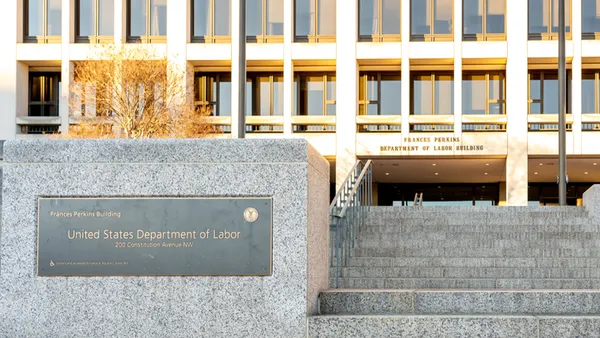Dive Brief:
- The pharmacy benefit manager marketplace is dominated by a handful of large players, many of which are vertically consolidated with health insurers, according to a new paper from a top medical association.
- On average, local PBM markets are highly concentrated across services like rebate negotiation, retail network management and claims adjudication, according to the study from the American Medical Association. And nationally, 77% of people in prescription drug plans are covered by an insurer that’s vertically integrated with a PBM.
- The AMA’s paper is the latest in a number of studies finding a lack of competition in the PBM landscape, which experts say could be harming consumers.
Dive Insight:
PBMs, which manage prescription drug benefits for the majority of Americans, were created decades ago to help insurers contain drug spending. But scrutiny of the drug middlemen has been ramping up amid concerns they may not be passing savings through to clients and that their negotiations with drugmakers could be inflating pharmaceutical prices, among other concerns.
The current situation can be traced back to a lack of competition in the PBM landscape, experts say. Just three companies — Optum Rx, Caremark and Express Scripts — jointly control 80% of the U.S. prescription drug market, according to the Federal Trade Commission.
Critics, including antitrust regulators, allege that those “Big Three” are leveraging their size to profit from their middleman role in the pharmaceutical supply chain.
The AMA’s new paper used 2022 and 2023 data from Medicare and commercial prescription drug plans and the FTC’s measure of market concentration to determine competition in PBM markets. It found on average high levels of concentration and vertical consolidation, when the same company owns both an insurer and a PBM.
Concentration levels were similar across PBM functions that plans and employers generally contract out: rebate negotiation, retail network management and claims adjudication, according to the paper.
For example, the study found that in 2023 Optum Rx, which is owned by UnitedHealth, was the largest PBM in the U.S. when it came to rebate negotiation, with 22.2% of the market. Optum Rx was followed by CVS’ Caremark, which held an 18.9% share, and Express Scripts, which held a 15.5% share.
Prime Therapeutics, a PBM that’s jointly owned by a number of Blue Cross Blue Shield insurers, rounded out the top four, with 10.6% of the rebate negotiation market.
However, more recent estimates of market concentration say Express Scripts holds a larger share of the market, after the PBM won a massive Centene contract that went into effect last year. The AMA said that next year’s edition of the study, which will be based on data from 2024, should rank Express Scripts as the second largest or largest PBM nationally.
Of the 10 largest PBMs in the rebate negotiation market, nine share ownership with health insurers, the AMA study found.
MedImpact is the only PBM that wasn’t affiliated with a health insurer — though, the company sells a standalone prescription drug plan, so technically all 10 are vertically integrated, the AMA said.
“These are important findings because low competition may lead to higher prices paid by insurers for PBM services, higher insurance premiums, PBMs not fully passing rebates through, and lower reimbursement to pharmacies,” the AMA’s paper reads. “Moreover, given extensive vertical integration of insurers and PBMs, non-affiliated insurers may be losing access to PBMs.”
The AMA’s paper is the latest call for antitrust regulators and lawmakers to give PBM consolidation more scrutiny. A number of state attorneys general, independent pharmacy groups and other experts have all asked Congress to consider breaking up leading PBMs.
The FTC is currently suing Caremark, Express Scripts and Optum Rx for allegedly driving up the cost of insulin, after publishing a pair of damning reports about their business practices. Congress has also shown an interest in reforming PBMs, with House and Senate committees holding numerous hearings in the past three years.
Lawmakers have introduced dozens of bills referencing the drug middlemen, running the gamut from forcing PBMs to disclose more information on their business practices to decoupling PBM compensation from the prices of drugs.
Concrete legislation hasn’t made it across the finish line, though some Washington watchers expect legislators to work to pass PBM reform in appropriations legislation closer to the end of 2025. Still, that’s left a gap that states are stepping into: All 50 states have enacted laws targeting PBMs in an effort to lower prescription drug pricing, according to the National Academy for State Health Policy.
The 186 pieces of state laws include those forbidding PBMs from stopping pharmacies from telling patients about cheaper drug alternatives or charging pharmacies extra fees, prohibiting PBMs from spread pricing and requiring PBMs to share more information about rebates and fees with the state.














